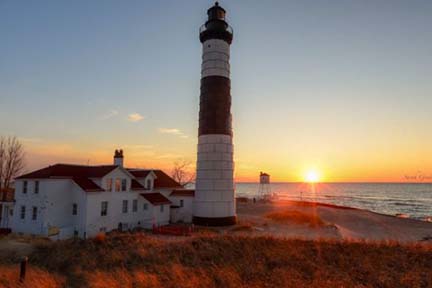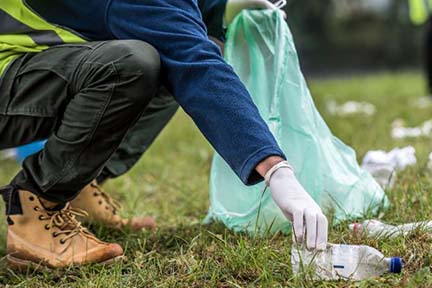
DNR News Digest – Week of July 10, 2023
|
|||||||||||||||||||||
News Digest – Week of July 10, 2023
Enjoy the Great Lakes, but always respect their power! More at Michigan.gov/BeachSafety. |
|||||||||||||||||||||
|

|
|||||||||||||||||||||
News Digest – Week of July 10, 2023
Enjoy the Great Lakes, but always respect their power! More at Michigan.gov/BeachSafety. |
|||||||||||||||||||||
|

| July 11, 2023 Contact: Joanne Foreman, 517-243-6450 It’s not Barbie Land: Learn from real people tackling invasive species issues in upcoming NotMISpecies webinarsIt’s perfectly OK if you’re eagerly awaiting the release of the live action “Barbie” movie this summer, where we anticipate she and Ken will get a taste of the less-than-perfect real world the rest of us call home. In the meantime, the NotMISpecies webinar series offers a chance to meet real researchers working to improve Michigan’s environment by better understanding invasive species, climate change and human behavior. The hourlong programs are free – just register online to watch live and participate in the question-and-answer session, or watch the recorded version at your leisure – with popcorn optional. July
AugustBoaters and anglers, primarily those who travel between waterways without cleaning their equipment, continue to spread aquatic invasive species. Why aren’t people cleaning when we know the risks of spread? Join Daniel Hayes from the MSU Department of Fisheries and Wildlife for “Why, Oh Why Won’t They Clean, Drain and Dry? Understanding Impediments to Boater and Angler Behavior Change” (9 a.m. Thursday, Aug. 10). Hayes and his students interviewed a thousand boaters and anglers to find the answers. He will share what they’ve learned about motivations and barriers to equipment cleaning, perceptions of invasive species spread and other interesting results. OctoberAsh, elm and chestnut trees once were as common in cities as the streets that bear their names. Our tree canopy today is much less diverse due to insects, disease, invasive species and poor species selection. Lawrence Sobson, Department of Natural Resources urban forester and partnership coordinator, explores the issue in “Where the Sidewalk Ends: Choosing Resilient Trees for Tomorrow’s Urban Environments” (9 a.m. Tuesday, Oct. 3). Sobson will offer examples of ideal tree species, explain how to assess urban sites and provide information to ensure the trees you choose can live for the next hundred years. November
The series will take breaks in September and December, leaving ample time to catch up on episodes you might have missed. Find recordings of all the past NotMISpecies webinars or register for new ones at Michigan.gov/EGLE/Outreach/ Michigan’s Invasive Species Program, a collaborative effort of the departments of Natural Resources; Environment, Great Lakes, and Energy; and Agriculture and Rural Development, coordinates and supports invasive species initiatives across the state and provides support through the Michigan Invasive Species Grant Program.
|
|||
   |

|
|||
|
|||
| Hi there,
With summer travel in full swing for Michiganders, my office has been receiving lots of calls regarding passport issues. The U.S. Department of State is experiencing unprecedented demand for passports, so I wanted to provide some helpful information to make sure your trip goes as smoothly as possible. If you are applying for your first passport, you will have to do so in-person at an acceptance facility. You can find a list of the 7,400 facilities, and some other important information, HERE. And remember to give yourself plenty of time – the State Department recommends applying for a passport six months before traveling to avoid any last-minute stress. If you already have a passport, it’s important to check when it expires before you make any travel plans. U.S. passports are valid for 10 years for adults and five years for children under 16. So, if your passport expires in a year or less, it’s time to submit your renewal application. And remember, many countries require that your passport be valid for at least six months after your planned departure. If you find yourself in a passport crisis, please reach out to our office, and our constituent services team will do their best to help. Click HERE for more information. And for more information on all things passport related, click HERE: Safe travels! – Rep. Elissa Slotkin |


Press Release FOR IMMEDIATE RELEASE: July 10, 2023 MEDIA CONTACT: Bob Wheaton, 517-241-2112, WheatonB@ Michigan provides update on Medicaid renewals and announces dashboard that will show data on reenrollment LANSING, Mich. – The Michigan Department of Health and Human Services (MDHHS) today unveiled an online dashboard available to the public that will show data on the renewal process for Medicaid coverage that restarted recently due to federal legislation. “We want to be sure that as many Michiganders as possible can continue to receive Medicaid coverage so that they can keep their families healthy or help people sign up for an affordable new plan,” said MDHHS Director Elizabeth Hertel. “This new dashboard allows the public to view our progress as we renew Medicaid coverage for families who remain eligible.” Medicaid and Healthy Michigan Plan beneficiaries must renew their coverage over the next year to comply with federal legislation that requires states to resume the redetermination of Medicaid eligibility. Annual renewals were paused for three years during the COVID-19 pandemic. In Michigan annual renewals are being staggered to take place monthly starting in June and running through May 2024. The dashboard shows current data on renewals for June, which will change as the department processes additional forms. MDHHS has until the end of July to receive renewal forms from the June cohort and determine eligibility. The federal Centers for Medicare & Medicaid Services allowed Michigan and other states to take new actions to preserve Medicaid coverage. As a result, MDHHS delayed disqualifying anyone from coverage for not returning the paperwork until the end of July. The dashboard – which will be updated every month – shows that as of July 6, MDHHS had renewed Medicaid or Healthy Michigan plan coverage for 103,540 people. That includes 30,456 renewals for enrollees who submitted their paperwork and 73,084 for people who were renewed by MDHHS because the department already had necessary information required for eligibility. As of July 6, the department was awaiting completed enrollment forms from 100,161 people. There were 6,935 people who were determined to no longer be eligible for Medicaid, such as people whose income has increased and individuals whose cases were closed for administrative reasons – including lack of proof of updated income or exceeding the asset limit for eligibility. “While we’re happy that many Michiganders have maintained coverage, we want to emphasize how important it is for people who receive reenrollment packets to fill out their information and return it promptly,” said Meghan Groen, MDHHS senior deputy director for the Behavioral and Physical Health and Aging Services Administration and Medicaid director. “The department will continue to do all we can to reach people who have not responded so that they can keep their coverage if they remain eligible.” Additional MDHHS efforts to help Michiganders keep their coverage are possible as a result of the federal government releasing new flexibilities and strategies late last month to state officials to lessen the impact of the resumption of Medicaid renewals. During this additional time, the department will review and adopt additional strategies authorized by the federal government for outreach to beneficiaries to preserve their Medicaid coverage. This includes:
MDHHS advises families to return any renewal paperwork from the department even if they believe they are no longer eligible for Medicaid. Some members of a household can obtain health care coverage even when others are not eligible. For example, a child may be eligible for MiChild, even if their parent is not eligible for other Medicaid programs. Or some Michiganders may have income that is over the income limit for one program and still be able to obtain health care benefits through another program. MDHHS will send monthly renewal notices four months before a beneficiary’s renewal date and follow up with text messages, phone calls, and emails during their renewal month. More than 3 million Michiganders, including 1 million Healthy Michigan enrollees, benefitted from keeping their Medicaid coverage without redeterminations on eligibility during the COVID-19 pandemic. MDHHS will assess a household’s eligibility for all Medicaid programs – not just for the programs in which someone is currently enrolled, and also for each family member in the household. MDHHS advises all Medicaid enrollees to check their renewal month at michigan.gov/MIBridges. Michiganders who no longer qualify for Medicaid will receive additional information about other affordable health coverage options available, including on HealthCare.gov. Affected Michiganders will be able to shop for and enroll in comprehensive health insurance as they transition away from Medicaid, and many Michiganders can purchase a plan for less than $10 per month. What Michigan Medicaid beneficiaries need to do to prepare:
The Michigan Department of Insurance and Financial Services (DIFS) is working with MDHHS to help impacted Michiganders get affordable health insurance if they are determined to be no longer eligible for Medicaid. DIFS can answer questions about purchasing a health insurance plan. Call DIFS at 877-999-6442, Monday through Friday from 8 a.m. to 5 p.m. or visit Michigan.gov/StayCovered to learn more. To ensure beneficiaries are aware of upcoming federal redetermination requirements and help them keep their coverage if eligible, the State of Michigan has:
More information about the how benefits connected to the COVID-19 Public Health Emergency are changing can be found at www.Michigan.gov/ |

FOR IMMEDIATE RELEASE MEDIA CONTACT
Second Adopt-A-Highway cleanup coming Saturday Fast facts:
LANSING, Mich. - Motorists should be on the lookout beginning Saturday as Adopt-A-Highway volunteers fan out along state roadways from Ironwood to Monroe picking up litter. Participants in the Michigan Department of Transportation (MDOT) program will clean highway roadsides from July 15 to 23 during the second of three scheduled pickups this year. The popular Adopt-A-Highway program began in Michigan in 1990 and has grown to involve more than 2,900 groups cleaning more than 6,000 miles of highway. Every year, volunteers regularly collect more than 60,000 bags of trash. Getting involved in Adopt-A-Highway is straightforward. Volunteers include members of civic groups, businesses and families. Crew members have to be at least 12 years old and each group must include at least three people. Groups are asked to adopt a section of highway for at least two years. There is no fee to participate. Adopt-A-Highway signs bearing group names are posted along the stretches of adopted highway. When working in a highway right of way, Adopt-A-Highway volunteers wear high-visibility, yellow-green safety vests required by federal regulations. MDOT provides free vests and trash bags, and arranges to haul away the trash. Sections of highway are available for adoption all over the state. Interested groups can get more information on joining the program at www.Michigan.gov/AdoptAHighway The year’s final Adopt-A-Highway pickup is scheduled for the fall, from Sept. 23 to Oct. 1. |